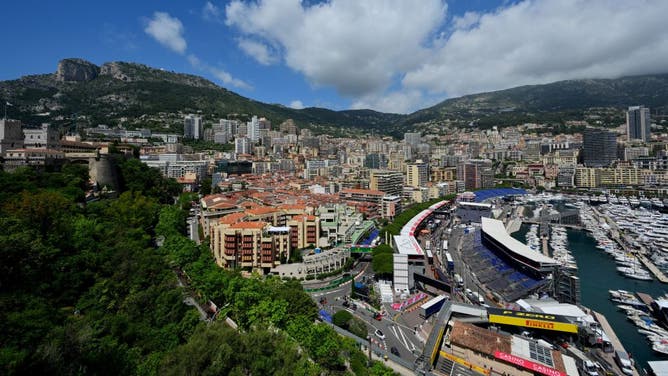F1 Has A Plan To Not Make The Monaco Grand Prix A Total Snooze, But Will It Work?
The Monaco Grand Prix is one of the most iconic events in all of sports, but it is also — and this is coming from me; a die-hard Formula 1 fan — has a habit of being boring as hell.
Sure, the backdrop is jaw-dropping, and there's nothing quite like seeing F1 cars whipping around the Principality, but the race almost always turns into a complete parade with little to no overtaking.
In fact, it often gets so bad in this respect, that the race is practically won on Saturday in qualifying.
The F1 powers that be know this as well as anyone and this year they're planning to try to do something about it.
According to BBC Sport, an agreement was reached to "increase the numbers of mandatory pit stops in the race." Traditionally, the number of mandatory pit stops was one as it always is, since teams are required to use two of the three tire compounds — hard, medium, and soft — during a race, assuming the race is being held under dry conditions.
The BBC report suggests that the way an extra pit stop could be made mandatory would simply be by making teams run all three tire compounds, therefore guaranteeing at least two stops in the race.
Now, the question is, will this work when it comes to making the race more exciting?
Kind of.

Monaco is a great backdrop for a race, but a tight, twisty track and big F1 cars doesn't always make for great racing. (Photo by Andrej ISAKOVIC / AFP) (Photo by ANDREJ ISAKOVIC/AFP via Getty Images)
This Rule Could Shake Things Up, But Won't Solve The Biggest Problem
Here's the thing, this will not solve the main reason the Monaco Grand Prix is usually dull and that is that F1 cars have gotten too big for the Monaco Circuit which really hasn't changed much over the decades. There's simply not enough room to pull off overtakes.
Former F1 champ Nelson Piquet once said driving at Monaco was like "riding a bike around your living room," and he was doing this back when cars were considerably more compact.
So, while I don't think this will increase the number of overtakes, I do think that it could do its job in shaking up the running order in other ways.
First of all, an additional pit stop means another opportunity for things to go wrong in the pits. We've seen races fall apart this way in the past, and the speed of a pitstop could be the difference between gaining or losing track position.
This rule would also affect strategy during the race as teams try to figure out when to use each tire (at least one of which will probably be an absolute nightmare for them) while also juggling tire allocation for the entire weekend. Needing to run all three in the race could mean that they'll need to compromise in practice or even qualifying to make sure that they have one race-ready set of each compound.
We'll see if this is the way F1 and the FIA decide to implement a rule like this, but I think it's certainly worth a shot.